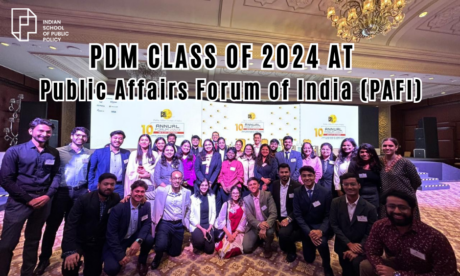Navigating Diplomacy: India’s Game Theory Triumph in the G20

A resolute attitude characterised India’s Chairmanship of the G20 negotiations. India showed unwavering determination to advance the ideals we held dear during our leadership of the G20. PAFI Annual Forum is a platform for interactive deliberations on different topics concerning public policy. My recent participation in the PAFI 2023 conclave provided me with invaluable insights into the intricacies of G20 negotiations, courtesy of the G20 Sherpa, Mr Amitabh Kant. It became clear that India is steadfast in its commitment to running the G20 through consensus. We are more inclined to collaborate with smaller multilateral organisations like IBSA and BRICS than with a larger body where member states face challenges in finding common ground.
One aspect of Mr Kant’s discussion that left an indelible mark on me was the effective use of the Brinkmanship strategy in negotiations. Brinkmanship, as defined by the Cambridge Dictionary, is the activity, especially in politics, of trying to get what you want by saying that if you do not get it, you will do something dangerous. Concurrently, I am currently enrolled in a course on Game Theory, taught by Professor Dr. K. K. Ladha at the Indian School of Public Policy as part of my PGP in Public Policy, Design, and Management. Professor Ladha’s lecture on Brinkmanship flashed before my eyes as Mr Kant recounted its practical application. India’s stature as a powerful nation and a key player on the global stage was further solidified by the success of our Brinkmanship threats in G20 negotiations as mentioned by the Sherpa. The Brinkmanship strategy, which involves controlled risk-taking, was also masterfully employed by Team India within the G20. By threatening to withdraw from negotiations and agreements, India compelled other states to cooperate in G20 negotiations. Given India’s growing global significance, the threshold for the effectiveness condition (the minimum value that any actor considers before defying) is set rather high for G20 member nations.
However, while employing the Brinkmanship strategy, India grappled with the challenge of possessing incomplete information in this simultaneous-move game. Therefore, it was crucial to ensure that our threats remained within a reasonable range. For a threat to be credible, the issuing party must act rationally at each decision node. India meticulously weighed its options, strategically placing threats to maximise our expected payoffs when opting for the Brinkmanship strategy.
My exposure to this real-world application of Game Theory in International Relations has only intensified my interest in the subject. Generally, as students, we question the practicality of the degrees, courses, and lectures we undertake. But, Professor Ladha’s teaching approach, which is heavily rooted in practical examples, has already been eye-opening. However, Mr Amitabh Kant’s discussion dispelled even the slightest lingering doubts about the lifelong relevance of Game Theory. I am now fully convinced of the enduring importance of this subject. Game Theory has always fascinated me, consistently surprising me in delightful ways. It is poised to become a lifelong companion—a tool for navigating the intricate Game of Sexes (a two-player coordination game that also involves elements of conflict) in personal life and for applying strategies like Hawk-Dove (a situation in which there is a competition for a shared resource and the contestants can choose either conciliation or conflict) and Brinkmanship in my professional endeavours and beyond.
As I embark on my journey as a public policy professional, my burgeoning interest in Game Theory promises to enrich my growth trajectory significantly. Game theory as a discipline helps us identify the preferred strategies and expected outcomes of different situations. This knowledge acts as an aid to design policies that promote efficiency, cooperation, and fairness. My enthusiasm and improving skills in Game Theory will elevate my contributions in the policy sphere. In essence, the PAFI meeting has illuminated the enduring relevance of Game Theory, setting the stage for its practical application in my professional and personal endeavours.
Nidhi Aggarwal
PDM Scholar, Class of 2024

Nidhi our scholar of Post Graduate Programme in Public Policy, Design & Management, is a policy enthusiast who seeks to interlink different aspects of policy using a behavioral understanding of social consequences. During her undergraduate studies, she had been actively engaged with NSS and the Rotary Club.
She has made working prototypes of solar power bank and photosensitive night lamp. She is interested in education, technology, urbanization, and women’s development. She aspires to lead the policy space as a professional at national level and bridge the gap between policy formulation and implementation.


